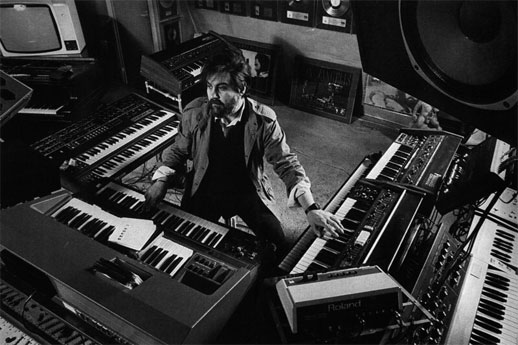
So it has been a while since my last post. I have been deeply immersed in working on my modular chronicles album that was successfully funded on Kickstarter by some great supporters ! During my time working on the project I realised it has been quite a while now since I have worked outside the box (DAW systems) and found how important it is for all of us music creators to sometimes turn off the computer and try to create music / arrangments without the help of any DAW.
As mentioned I had grown up using this method but only until I returned the past weeks working this way it brought it to light again. Something about the tactile method of physically turning knobs and playing live without relying on Midi, Quantize, copy/paste really gives a new level to creativity. One has to properly rehearse the piece they are working on and remember what they did. Not only is it great for the mind but makes one a better musician. My good friend Thayne Taylor who is basically a living legend lives on the tropical Island of Kauai, has an amazing recording studio and writes some beautiful music with his wife Lynn. I once was working on a piece with him and he had the idea on acoustic guitar so I started to record the piece and he played pretty much the entire arrangement of the song in one go. I was blown away as mostly people these days do a bit at a time or can’t remember how the song went. Thayne could play a piece well and remember it !
If you can afford it, I would recommend the following setup for any music composer being electronic or acoustic:
Analog Synth (Moog, Dave Smith etc.)
Analog Sequencer (GenoQs Nemo/octopus, Doepfer’s Dark Time)
Drum machine (Elektron Machine Drum, Korg Elektribe etc.)
Effects pedals (Boss Loop stations, Eventide Reverb, Moogerfoogers etc.)
Small mixing console (Mackie, Presonus)
Blank score/chord sheet paper.
Acoustic instruments (Guitars, Piano etc.)
and by all means no computers while composing/arranging ! Try and make the entire piece of music, remember the arrangement and trigger points, and play it to it’s full complexity without the help of pre-recorded tracks. If you invest in the drum machines and analog sequencers you’ll be surprised at how much can be done live without recording anything.
What I always found so interesting with what film composer Vangelis use to achieve was surround himself with different instruments and play the entire score live. His argument was that you can control the entire orchestra with one person. If you’re in a band make the whole song sound as perfect as you would like to hear it when it’s recorded. Remember Earth Wind and Fire didn’t have quantise or copy/paste they had to play it all the way through and make it sound awesome !
To conclude I’m not saying don’t use computers but just don’t rely on them. At the end of the day they are a tool for the composer and if it means when someone gives you a piano or you have to sing live you can’t make it sound as good as it is on the record, you need to go back and practice/learn more until you can ! Indeed that including myself !


